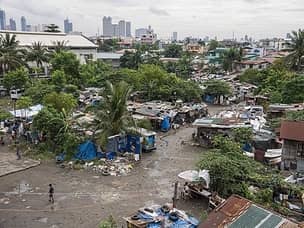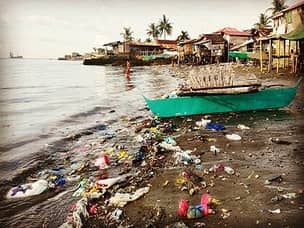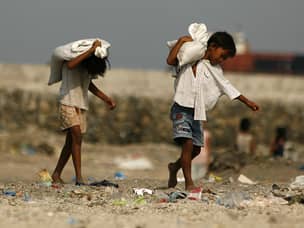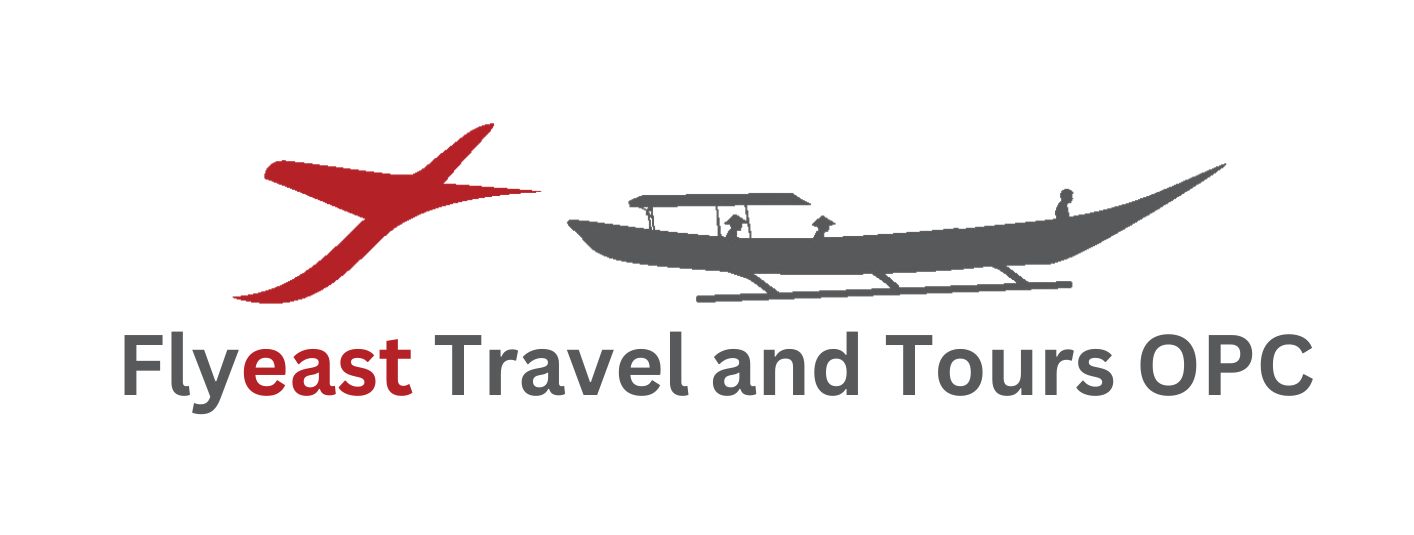There’s no set rules on the best way to travel. We all have our own unique styles that are the most convenient, comfortable, and affordable to us. However, we should all be aware of the implications of our actions, making sure our enjoyment doesn’t come at the expense of others. This is called responsible tourism, and it’s even more relevant in developing countries, such as the Philippines. For us, responsible tourism means having positive interactions with the local authorities, the community, and our clients.
The eco-tourism movement, which aims to protect wildlife and nature, has started gaining traction over recent years. While it’s great to protect nature and wildlife, this isn’t enough to ensure that the locals and the places they live in are also protected from the perils brought upon them by mass tourism. Locals should benefit from tourism, but instead they are often exploited by companies who are too eager to jump on the ecotourism bandwagon without really intending to contribute to the local community.
Here, at PhilippineTravelPackage.com, we strive to help the country grow alongside us and, in the process, ensure that the people we bring to the Philippines are aware of and share the same sentiment. This article covers the main challenges the Philippines is facing due to increased tourism. Our aim, at the very least, is to help raise awareness of these issues in the hope that, by informing our clients, we can influence their actions, helping you be a part of the solution instead of the problem.
Problems of the Philippines as a developing country
The following issues are relevant to any third-world country you might visit, at least to some extent. While developing regions may offer a more exciting and authentic type of holiday, it’s important to be aware of the struggles the locals are dealing with on a daily basis, as well as to understand how these issues might affect you during your stay.
Poverty and social inequality

The Philippines has been consistent in its steady economic growth over the past few years. It even surpassed China’s percentage growth, making it the fastest-growing nation in Asia. However, despite what the economic rankings say, poverty remains the most predominant issue in the country. Such growth has had little or no impact on unemployment and therefore does not promote inclusive growth.
The reasons this is happening are twofold. First, the Philippines is such a poor a country that any growth would seem exponential. It’s no coincidence that all the other record-setting countries in terms of financial growth are also impoverished (Laos, for example). Second, there is a huge division of wealth in the Philippines. In fact, it’s one of the worst in the world in terms of social inequality and the income gap.
It’s common to see people begging on the streets, often highlighting the stark contrast between the lives of people with nothing to eat and the luxury of a 5-star hotel. When a child begs for money, it can be extremely difficult to say no or even fathom why this might not benefit them. However, many of these children are being sent out by syndicates who keep the children out of school and put the money towards drugs or crime. Your act of generosity might therefore perpetuate the problem.
If you really want to witness the hardships of poverty and help improve the locals’ situation, take our Manila slums tour for example, where 100% of the money you pay goes directly to the residents of these areas. This tour is in collaboration with a well-known local charity organization and we run it pro-bono, receiving absolutely no commission.
Unreliable Health Care
While there are many good hospitals and health clinics in the cities, finding decent medical treatment in more remote areas is a struggle. Some high-end resorts and hotels employ very good doctors and nurses, but if you’re traveling on a budget, your options for healthcare are really limited and unreliable. If a foreign tourist is involved in a serious accident, the nearest hospital with complete facilities could be miles away.
The government is now trying to invest in health care and first aid in busy tourist areas to ensure that help is always accessible. Obtaining travel and medical insurance before you set off for the Philippines is highly advisable. All the decent hospitals here are private and expensive, and you might even be refused treatment until you can prove that your bills will be covered.
Lack of solid Infrastructure

Infrastructure is the backbone of the economy. The economic growth of the country is impressive, but there is still a big hole to fill in terms of infrastructure and tourism. The Philippines is now poised to be one of the leading tourism success stories in Asia, but the country’s infrastructure cannot keep up with the sudden influx of visitors.
As a result, even the most popular travel destinations in the country still have bad roads, disorganized and weak sewage systems, and insufficient electric supplies and transportation. These issues ultimately affect the tourism industry and put the country in a negative light. Connections and transfers should be made easier, faster, and more reliable so that tourists and locals can benefit from the more efficient transfer of goods and people.
The best example of a failed infrastructure is that of Boracay. TThe most famous island in the country is now closed for rehabilitation because its infrastructure was not effective and therefore couldn’t support the booming commercialization. Infrastructure in Palawan is also lagging behind; many places in El Nido and Coron don’t have access to regular electricity or any internet connection, and getting there via bumpy dirt roads is challenging.
Modernization and westernization
The Philippines is arguably more western than its Asian neighbors. Most locals want to adopt a modern lifestyle, and western culture appeals to the masses. As a result, the indigenous cultures and tribal traditions are gradually being eradicated, and Filipino authentic identity is hard to define. Years of being under foreign rule have created an inferiority complex for the country and its people, and sadly they do everything they can to be more like westerners. This is evident by the use of Caucasian models in advertising campaigns.
Although the cultural values and traditions are still present, it is becoming far less common to witness them, especially if you’re a tourist only visiting for a short while. Hotel designs are now mostly of western and modern influence. Big business establishments are run by foreigners, and menus are heavily influenced by western dishes. Boracay has lost its soul because of heavy commercialization, and Palawan is starting to transform into an internationalized destination.
The local government has failed to keep the culture intact, and the tribes are being pushed behind the curtains. In their efforts to modernize the communities and make the country more convenient for tourists, the local communities have lost their distinct character. This heavy westernization has weakened the already impoverished communities and tribes. We try to do the best we can, by sending our clients to places where local traditions are still alive and where rich colorful culture is still celebrated. If you’re interested in such trips, our Banaue Rice terraces overnight trek, which includes an overnight stay in the Ivatan village, is a good place to start.
Problems caused directly by growing tourism
While growing tourism helps to support the country’s economy, it can also have negative consequences, particularly if it occurs at such a rate that proper practices are not followed to ensure the protection of communities and the environment.
Heavy commercialization
As much as westernization is a problem caused by the local government’s efforts to develop the country, heavy commercialization is directly influenced by tourism as well. While commercialization is inevitable, it be restricted and controlled to ensure that business establishments commit to the imposed policies and procedures.
The problem is that only the owners of big business enterprises benefit from mass tourism, while the locals are left with nothing. Consequently, they craft their own strategies to earn a small profit and take advantage of the growing tourism in their locality, which contributes to the organized chaos. Local vendors put up stalls, with independent fishermen selling their catch of the day directly to tourists, and so on. Often, in the frenzy of competitive business, locals disregard nature, dwindling the natural resources faster than they can be replenished, or ignoring proper waste-disposal regulations. Tourists may also contribute by not segregating waste appropriately.
If unregulated, these effects of heavy commercialization can cause serious harm. The best example is the whale shark tour in Oslob, Cebu. Local government regulations have failed to protect these animals, whose natural migratory behavior has been massively affected by feeding practices that entice the sharks to stay local and swim with tourists.
Sex tourism
Unfortunately, just like the other Southeast Asian nations, the Philippines has a reputation for sex tourism and prostitution. Prostitution is illegal, but the trade still operates under the pretense of entertainment. This industry is huge domestically, and according to reports an estimated 800,000 women, men, and children are subjected to work in the trade. Sex workers are normally employed as dancers, singers, guest relations officers, masseuses, or waitresses in clubs and bars, and they are expected to leave with any client who pays a fee.
There are three kinds of prostitute in the country. The majority are “entertainers” who work for bar and club owners and are forced to say yes to any customer who offers to pay for their services. They are also subjected to drug use by their employers, so that they perform better. These types of establishment have often been proven to employ minors in the sex trade.
The second type are “street prostitutes”, who approach people on the streets offering their services. Due to their location and the nature of their work, they are more susceptible to violence, abuse, and rape.
The third type are “call girls” or “escorts”, who account for the minority. Employed by pimps, they are referred to as “high-end prostitutes” because they normally attract clients in hotels and high-end bars. Escorts are the most protected. They can also choose their customers sometimes.
Regardless of which category these women fall under, an overwhelming majority are reluctantly introduced to this lifestyle and become trapped and dependent. They usually come from poor, broken homes. Many of them already have a child in their teens and are forced to work to support their families.
According to the Coalition Against Trafficking in Women, 15,000 Australian men visit Angeles, Pampanga (north of Manila) on sex tours each year. Numerous Americans, Europeans, and Brits also take part in this trade, with occasional reports of the abuse and rape of women and minors.
Child Prostitution and Abuse
Child protection agencies in the Philippines estimate that almost half the prostitutes in the country are minors. The majority were taken from the streets or lured away from their homes by the false promise of decent work, food, water, or shelter.
As a travel agency, we sometimes receive strange and unsettling inquiries. It is our responsibility to report any malicious intent, and we do. We have spoken to local authorities and foreign agency representatives here in the Philippines to ensure we are fully prepared to properly deal with potential pedophiles and sex offenders.
We urge our clients to be aware of these situations and to immediately report any suspicious activity. If you suspect someone of being a pedophile or engaging in any sexual misconduct towards minors, contact the authorities straight away.
Illegal child labor and informal work practices

In a similar way that offering money to a begging child might perpetuate their problems, the practice of buying directly from locals is only a short-term solution to a wider issue, as it weakens the overall resilience of the community, encouraging inexperienced workers and vendors without proper permits to run small businesses.
While the intent is in no way malicious, it defeats the purpose and leads to numerous unprecedented issues that cannot be resolved quickly. Here are some examples:
1) Children selling souvenirs on the beach, or offering simple services like hair braiding or massages. These children should be in school, but instead they are forced to work and beg for money. This happens in Boracay and other major island destinations in the country.
2) Vendors who have no permit to sell, and no proper experience whatsoever. This includes unlicensed tour operators offering cheaper prices, who compromise client safety and neglect responsible tourism practices. These malpractices lead to accidents, bad service experiences, tourist traps, and scams.
3) Tourists who tolerate these illegal work practices, buying goods and services from unlicensed operators. This teaches the locals that they can get away with cutting corners. It also teaches children that foreign tourists are walking ATM’s, encouraging them to scam tourists and live off handouts.
This is not to say that it isn’t important to help the locals. Indeed, we must—but if you really want to put your money into good use and support the local economy while encouraging good and honest work practices, it’s better to invest it in regulated businesses and charities. This way, you practice responsible tourism, your money goes to the right places, and you encourage healthy and legal work practices.
Cultural sensitivity
Filipinos have a complicated history with foreigners. On the one hand, they feel inferior and want to resemble westerners, but at the same time, they harbor resentment and jealousy. Locals want to feel proud of their country and identity, even as their identity is diluted by westernization. Therefore, they tend to be extremely patriotic and very, very sensitive.
It’s not uncommon for foreign tourists to appear condescending towards local traditions and culture. Even though the standards of living might not match up to what you’re used to, it’s important to keep in mind that you’re a visitor to a third-world country. While the locals might even agree with remarks that services are sometimes sub-optimal, you should have realistic expectations and remain sensitive to your hosts.
A visit to the Philippines is far more rewarding if you stay humble and appreciate what the country has to offer, rather than asking for too much. An informative discussion with a local about the differences between their country and yours may leave a lasting impression and widen everyone’s perspectives. Sadly, some tourists’ frustration at the less efficient infrastructure leads them to preach to and patronize the locals, which reflects poorly on other travelers and causes offence.
To travel responsibly, you should make informed decisions based on your moral values, but consider the wider implications of your actions. Adjust to the lifestyle, and appreciate that you have the privileged opportunity to visit a less-developed country and experience something different.
Travel responsibly in the Philippines
We, at PhilippinesTravelPackage.com promote responsible tourism by minimizing our negative impacts and maximizing the positive ones for both the people living in our travel destinations and the environment we operate in. We do what we can to help. We help our clients find the right balance between enjoying their dream vacation and learning about the local culture, history, political situation, and struggles. We also urge them to be a contributing factor in making this place that little bit better.
We respect cultural diversities and we see the importance of preserving the culture and history. We take advantage of the endless opportunities for cultural immersion and exchange. We send our clients to local communities where they can see and experience first-hand, and learn to better understand, the local lifestyle. This is crucial because traditions, customs, and cultures across the Philippines can vary substantially from one province to another, so encouraging our guests to have an open mind and respect all local cultures is of utmost importance to us.
If you want to contribute to the betterment of the local community and if you share the values discussed here, book with us and travel responsibly. We have a dedicated team who are formally knowledgeable about the environmental sciences, economic, and social issues affecting the developing world. This, together with our strong personal and moral convictions, means that we take social and environmental issues very seriously and we strive to help.
